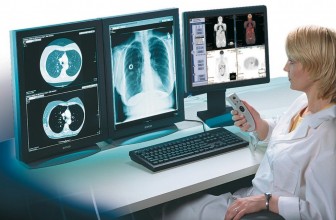
Licensed Practical Nurses form part of the typical healthcare team, where they provide preventative health care and standard emergency to patients who are injured, sick, or just need regular health checkups. LPNs perform these functions under the supervision of doctors and registered nurses. To acquire state certification to practice nursing, LPNs are required to complete approved LPN programs.
LPN programs are training courses to which Licenses Practitioner Nurses (LPNs) must subject themselves so as to get the necessary training on the knowledge and skills needed for practical nurses. The LPN programs equip nurses with skills to monitor patients’ vital signs, assist patients during ambulation, provide bedside hygiene and feed patients through different routes. These programs are available at many hospitals, technical schools and community colleges in the United States and Canada.
Contents:
- What Do LPN Programs Comprise?
- Finding the Right LPN Programs
- LPN Programs: Admission Requirements
- Boards Of Cooperative Educational Services (BOCES)
- BOCES LPN Programs Requirements
- Online LPN Programs
- LPN Bridge Programs
- LPN to RN Bridge Programs
- LPN to ADN Bridge Programs
- LPN to BSN Bridge Programs
- LPN to MSN Bridge Programs
- Tuition and Fees for LPN Programs
- LPN Programs by State
What Do LPN Programs Comprise?

The LPN training program generally lasts for 6 months to 1 year. The program can also be taken online or part-time. Additionally, the program comprises two parts:
- Theoretical/Didactic Portion — This part details on the basic textbook knowledge of the nursing practice.
- Practical/Internship Portion — On acquiring fundamental knowledge and learning necessary skills in nursing, this part involves hands-on practice in an actual healthcare setting.
Finding the Right LPN Programs

One of the most important and toughest decisions you will make when deciding to become an LPN is where to attend school. The decision is usually daunting in states with many accredited programs, such as Ohio, Florida, and New York.
Not every LPN program is created equal, some programs may better fit you than others. When you are weighing your nursing practice options, it is important to take some factors into consideration:
- The program’s NCLEX-PN reputation or pass rate
- State accreditation for the LPN program
- Online classes for LPN programs
- The cost of the program
- Location of the LPN program
- Hands-on experience you will acquire
These factors will help you choose your suitable LPN program. The more knowledge and skills you gain while completing your LPN classes will better prepare you for your examination as well as your future career as an LPN.
LPN Programs: Admission Requirements

LPN programs are offered in many accredited nursing schools across the United States. Several schools may have different sets of requirements, but the basic admission requirements mandated include:
- Age requirement — In the U.S., the law requires all nurses to be 18 years and above to qualify for employment and training. You are required to present your birth certificate to verify the said requisite.
- High school diploma — You need to be a high school graduate in order to qualify for the LPN training program. This is to make sure that applicants have already done the required general education subjects before the term begins.
- Transcript of records — The transcripts supplement one’s high school academic performance and other academic attainments. Most schools require GPA of at least 2.0/4.0 for a student to be considered for admission. Other schools accept GED-certificates with a particular score to be used as an alternative to GPA that doesn’t meet standards.
- General education requirements — Different general education subjects supplement the LPN program, including biology, chemistry, statistics, algebra and general sciences.
- English proficiency — An applicant’s oral and written communication skills are important to any nursing course, especially for foreign students applying for an LPN program. For this requirement, you may be required to take the TOEFL or IELTS.
Boards Of Cooperative Educational Services (BOCES)

BOCES was created in 1948 by the New York state legislature. The boards provide career and education training for recent graduates, high school students and adults in almost all of the state’s 721 school districts.
BOCES offers a large variety of on-site job training and educational programs, including building maintenance, auto body repair, criminal justice, practical nursing, electrical wiring, as well as computer repair and networking.
Due to the huge demand of medical professionals in the state of New York, BOCES LPN programs have become more popular. LPNs have no shortage of opportunities to work in diverse settings as nursing homes, hospitals, private businesses, government agencies, home health agencies, public and private health care clinics, and more. In the state of New York, LPNs perform important tasks, like Administering medication, performing routine care procedures, assisting registered nurses and physicians, and counselling families and patients on treatment regimens and illnesses.
BOCES LPN Programs Requirements

Recently there has been a great demand for LPN jobs in the state of New York, therefore BOCES LPN programs are more popular and mostly consist competitive admission requirements.
There are multiple BOCES LPN programs in the state of New York that serve applicants in nearly all metropolitan and geographic areas of the state. Every district has a separate admission process, but most of the BOCES programs have similar standards for eligibility. The standards require applicants to:
- Complete Nurse Entrance Exam — This exam evaluates your mathematics as well as verbal skills, including reading and vocabulary comprehension. In addition, prep courses are offered in many districts to aid you to prepare for the nurse entrance exam.
- Possess a GED or High School Diploma — For an applicant to be considered for the BOCES LPN program in the state of New York, you must have a GED or high school diploma.
- Be at least 18 years old — The BOCES LPN program requires that you be 18 years and above, however, some programs also accept applications from 17-year-old students.
- Complete Interview Process — The BOCES LPN interview is similar to the common job interview. Its process includes several questions structured to enable program administrators to determine if you are a good candidate to become a health care professional in the state of New York.
- Pass a Medical, Physical, and Background Screening — You must pass a medical, physical, and background screening, that includes criminal background check, blood work, and immunizations.
- Received CPR Certification — Most BOCES LPN programs in the state of New York require students to be certified to do CPR. You can get CPR certification by completing the first-aid class or at the school, you have applied to.
In addition, LPNs in New York state have opportunities to advance their education through LPN bridge programs. These programs enable practicing LPN’s to take in-person or online classes to earn Bachelor of Science in Nursing degrees and become registered nurses (RNs).
Online LPN Programs
In the United States, there are selected schools offering a Bachelor’s Nursing degree program but at high costs. However, most educational institutions provide low-cost nursing programs, LPN training programs, that are completed in a short period of time, generally 2 years less than the bachelor’s degree.
Accessibility of the LPN program is made easier through the online LPN programs available on the internet. There are many nursing schools that give LPN training online.
Accreditation
The first step in applying for LPN training online is to get an online LPN program which is duly approved by the NLNAC, National League Of Nursing Accrediting Commission. Accreditation ensures that the training program meets all the standards set out by the state governing bodies that look over the practice of nursing.
It is important to attend an online LPN program that is accredited for assured quality education. Additionally, to qualify for the LPN’s licensure examination (NCLEX-RN), your school should be identified by the state nursing board. Accredited online LPN programs also offer you more chances to progress your nursing career, like taking additional studies to acquire a master’s degree, bachelor’s degree or diploma in nursing.
Some of the most popular schools that offer state-approved online LPN programs, include:
- Florida Hospital College Of Health Sciences
- St. Joseph’s College
- South University
- California University Of Pennsylvania
- Independence University
Online LPN programs are suitable for you mainly because of their flexibility and are great choices if you wish to pursue a career in nursing, but at the same time wish to retain your full-time employment.
Not all nursing training can be acquired through online LPN programs because nursing requires a lot of hands-on work and clinical experience credits that cannot be done online. Even though these programs have a low-cost tuition fee, you will need a good computer along with reliable internet connection.
Overall, LPN programs online are convenient for individuals who don’t have sufficient time for campus-based education.
LPN Bridge Programs

Once you decide on becoming a nurse, you need to take an LPN training program along with LPN bridge programs as you advance your nursing career. Starting out as a Licensed Practice Nurse is of great advantage, you can complete your education in a short period of time, and promptly start out your nursing career while earning a good salary. Common LPN bridge programs, include:
- LPN to RN bridge programs
- LPN to ADN bridge programs
- LPN to BSN bridge programs
- LPN to MSN bridge programs
LPN to RN Bridge Programs
Needless to say, registered nurses have more benefits over LPN’s in terms of career opportunities, salary and job stability. However, getting the RN title takes a long period of time if you go through the normal path, that takes about 4 years.
With the LPN to RN bridge programs, the time to acquire your RN license is shortened. Many schools offer both online and classroom-based LPN to RN bridge programs which can be finished in a period of 7 to 18 months, this depends on the kind of program being offered in a specific school. Many LPN to RN bridge programs award 10-credit hours of the previous practical nurse’s training program.
The typical admission requirements for the LPN to RN program, include:
- High school diploma
- A GPA of at least 2.0
- A current LPN license from the United States / a jurisdiction that is an NCSBN associate member
LPN to ADN Bridge Programs

Another great option for LPN’s is the LPN to ADN bridge program. Generally, this program takes 3 semesters of full-time study to complete or 5 semesters for those students who want to pursue the course on a part-time basis. Additionally, the LPN to ADN bridge program can enable applicants to prepare for the licensure examination, NCLEX-RN for registered nurses.
Applicants are required to take up pre-requisite programs before starting the LPN to ADN bridge program, the prerequisite courses can vary per institution. Basic courses you can take up include, but aren’t limited to English, Math and Biology courses for medical providers.
LPN to BSN Bridge Programs

The third option for LPNs is to take up an LPN to BSN bridge program. The benefit of completing a Bachelor’s Degree in Nursing is that most employers look to employ the applicants with higher educational attainment, therefore more career opportunities are in store.
The LPN to BSN bridge program can be completed within 3 years. Prerequisite courses should be taken before starting the program. Usual admission requirements, include:
- High school diploma
- Current license / certificate of employment as an LPN
LPN to MSN Bridge Programs
One important thing to note is that direct LPN to MSN bridge programs are not available. Interested LPNs should take up bridge programs in order to become a registered nurse. Once they have acquired their license as an RN, they can apply for a master’s degree program to be finished in 2 years time, this depends on the MSN program type being offered.
There are various alternate paths for enthusiastic LPNs to advance their career status. These bridge programs are offered to aid LPNs to boost their careers while maintaining their full-time employment as a licensed practical nurse. It can also help you save resources and time in a practical way.
Tuition and Fees for LPN Programs

Some LPN programs are offered in all states with fees ranging from $1,000 – $15,000 depending on the LPN program. Notable LPN program options that meet the approval criteria by your state’s nursing board and their fees include:
- Adult Education School LPN Program — This is the cheapest mode of study, costing around $1,500 to $2,500 each year. This program usually admits adults holding only a high school degree. Generally, students with higher degrees are denied enrollment.
- High School LPN Program — This program costs roughly $5,000 to $10,000 for a single year of study. The entry requirements aren’t as restrictive as the college based programs for potential students only need a high school diploma. Like the adult LPN program, this is the most student-friendly option with program supervisors giving splendid program support and job placement.
- College Based LPN Program — This option can be expensive, costing around $3,500 to $15,000, but is ideal for those who can’t handle an intensive 1-year program of study. Some prerequisite courses like biology, math, chemistry, anatomy, psychology and physiology are required. This option is cheaper if you have already undergone several prerequisite classes. However, most of these programs are less supportive, leaving the students to decide their own career growth direction.
LPN Programs by State
Every state in the United States offers LPN programs that are certified by the state board of nursing. Each state has various schools in which students enroll in the LPN program. All state boards of nursing offer licensure to LPNs after meeting specific requirements like taking and passing the NCLEX exam or through an endorsement. In addition, the state nursing boards also approve the LPN program offered within the state. Some of the states most popular schools that offer the Licensed Practical Nurse training programs, include:
LPN Programs in Massachusetts (Massachusetts board of nursing)
- Berkshire Community College
- Blue Hills Regional Technical School
- Diman Regional Technical Institute
- Greenfield Community College
- Holyoke Community College
LPN Programs in Georgia (Georgia board of nursing)
- Albany Technical College
- Altamaha Technical College
- Athens Technical College
- Atlanta Technical College
- Augusta Technical College
LPN Programs in Michigan (Michigan board of nursing)
- Alpena Community College
- Baker College
- Bay de Noc Community College
- Davenport University
- Glen Oaks Community College
LPN Programs in Pennsylvania (Pennsylvania board of nursing)
- Allegany College
- Center for Arts and Technology
- Clarion County Career Center
- Central Pennsylvania Institute of Science and Technology
- Central Susquehanna Intermediate Unit LPN Career
LPN Programs in New York (New York board of nursing)
- Albany BOCES – Adult Practical Nursing Program
- Broome Delaware Tioga BOCES — Practical Nursing Program
- Cattaraugus-Allegany BOCES — Practical Nursing Program
- Cayuga-Onondaga BOCES — Practical Nursing Program
- Central Technical Vocational Center
LPN Program in New Jersey (New Jersey board of nursing)
- Camden County College
- Dover Business College
- Eastwick College and the Hohokus Schools
- Essex County College
- Holy Name Hospital School of Nursing
LPN Programs in North Carolina (North Carolina board of nursing)
- Asheville-Buncombe Technical Community College
- Beaufort County Community College
- Bladen Community College
- Brunswick Community College
- Cape Fear Community College
LPN Program in Connecticut (Connecticut board of nursing)
- Lincoln Culinary Institute
- Lincoln Technical Institute
- Lincoln Technical Institute
- Porter and Chester Institute
- Stone Academy
If you are seeking to complete an LPN program in either of these states, note that there are several course requirements in existence. The requirements are determined by the institution in which you are enrolled. Other factors that influence the outline that an LPN program will follow is whether the program is in an online environment or in a mortar or brick institution. In general, most LPN programs will include specific core requirements that will enable you to successfully complete the NCLEX-PN.
SOURCES:
www.licensedpracticalnurse.net









